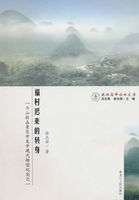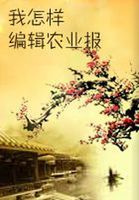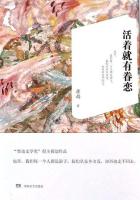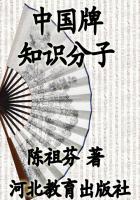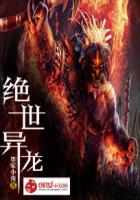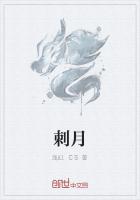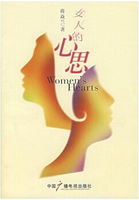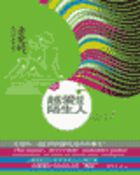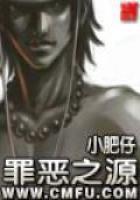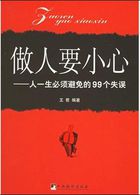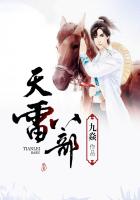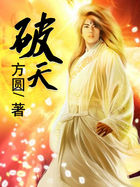1.2 作者人生
1.2 The Writer’s Life
吴承恩(1500—1582),字汝忠,号射阳人,祖籍江苏省,后来搬家到淮安府山阳县(今江苏省淮安市)。其曾祖吴铭,为浙江省余姚县教育训导;其祖父吴贞,任浙江省仁和县(今杭州市)教谕。其父吴锐,童年时表现出学习能力的倾向并受到了很好的小学教育,但他四岁丧父,其母带他回山阳故土居住,由于家庭贫困,他不得不弃学经商以谋生。他很年轻时就入赘徐家。因他夫人是徐家的独生女,岳父死后,他接过岳父家经营的丝绸铺,以经营谋生。尽管身为商人,吴锐从不与商人为伍,而是致力于文学研究和时政讨论。因此,他常被欺负并被市中人称作“痴翁”。他和徐夫人生下一个女儿,名叫吴承嘉。他中年仍无子,纳妾张氏,生下吴承恩。受这样家庭背景的影响,吴承恩在幼年时就表现出读书的热情,立志要通过科举考试。他年轻时博览群书,受到当地教育督查官员的赞赏并获得了博学的好名声。然而,他几次参加科举考试都失败了,只在中年时经推荐才中岁贡。嘉靖四年(1525年),他与淮安望族叶家小姐结婚。他们生有一个儿子,叫凤毛,于1544年与他好友沈坤之女订婚,但在他们结婚前凤毛就死了。这对吴承恩打击很大,因他家是几代单传。吴父逝世后,他又参加了几次科举考试,仍名落孙山,最后才在嘉靖四十三年(1564年),应时任高官的同乡李春芳之邀,赴京城吏部候选。等了一两年,他弄得个长兴县县丞的职位,作知县的助手,是个卑微官职。在任时他与主簿“分掌粮马、巡捕之事”,为征粮之事得罪了富豪,被诬陷为贪赃,撤职罢官。真可怜!他人生中第一次也是最后一次做官仅有一年左右的时间。不久他的案情被弄清了。后来他被任命为荆王府纪善之职,可算恢复了名誉。但不确定他实际上去任职没有。他回到家乡,度过余年,以文学创作来耗去他的有生之年。他一生经历过弘治、正德、嘉靖、隆庆、万历五个明朝皇帝时期,是个经历多、见识广的人。他也是个长寿之人,享年八十三岁。
Wu Cheng’en (1500—1582) bore the style Ruzhong and the pen name Sheyang Hermit. His ancestralhome was Lianshui in Jiangsu Province, and the family later moved to Shanyang in Huai’an (present-dayHuai’an, Jiangsu Province). His great-grandfather, Wu Ming, had served as education commissioner forYuyao County, Zhejiang Province, and his grandfather, Wu Zhen, had served as an education official inRenhe County (present-day Hangzhou), also in Zhejiang. His father, Wu Rui, had in his childhood shownan aptitude for study, and had received a good primary education, but his father died when he was only fouryears old. His mother took him to Shanyang, their native land and lived there. Due to the family’s straitenedcircumstances he had to abandon his studies and go into trade to earn a living. When he was quite young, hemarried into and lived with his wife’s family. Because his wife was the only child of her parents, he took overthe silk shop from his wife’s side of the family after his father-in-law died. Despite being a tradesman, WuRui kept aloof from the company of his fellow merchants, instead devoting himself to literary pursuits anddiscussions of current affairs. On account of this, he was often bullied and dubbed the“Silly old fellow”bythe townspeople. He and his wife Xu gave birth to a daughter named Wu Chengjia. When he became middle-aged, he had a concubine nee Zhang, who gave birth to a son named Wu Cheng’en. Influenced by this familybackground, Wu Cheng’en showed an enthusiasm for books at a very early age, and had ambitions to passthe imperial civil service examination. While he was still young, he became very widely read, was praisedby the local inspector of education and earned a reputation for learning. However, he failed to pass theexamination even after several attempts, and it was only in middle age that he entered the Imperial Collegewith recommendations. In the 4th year of the Jiajing period (i.e. 1525) he married Miss Ye who came from adistinguished family in Huai’an. They had a son named Feng Mao (phoenix Feathers), who was engaged to hisgood friend Shen Kun’s daughter. But he died before their marriage. This was a heavy blow to Wu Cheng’en,for whose family had only one son for several generations. After Wu’s father died, he failed the imperialexaminations for another several years, and finally in the 43 rd year of the Jiajing period (1564) he was invitedto the capital to be selected for official positions by a senior official named Li Chunfang, who was from thesame hometown. One or two years later, he managed to obtain an official post in Changxing County, Zhejiang,as assistant to the county magistrate. It turned out to be a menial position. During his term of office, he andanother official were in charge of provisions and police. He offended some rich and powerful people during hiscollecting grains for the country and in return they falsely accused him of accepting bribes. Consequently, hewas dismissed from his post. What a pity! His first time and also the last time in his life to be an official onlylasted a year or so. Before long his case was made clear. Later, he was named to a post as secretary at PrinceJing’s Mansion. That might be regarded as the rehabilitation of his reputation. But it is uncertain whether heactually took up the post or not. He returned home and spent his remaining years in his hometown, passinghis time in literary composition. He underwent Hongzhi, Zhengde, Jiajing, Longqing, Wanli five periods ofMing Dynasty and was a man of wide knowledge and experience. He also lived a long life with the age ofeighty-three.
吴承恩从小就喜欢轶事和故事。他在《禹鼎志》序言中写道:“我在上学时,就秘密地买神异故事和野言稗史书籍,隐蔽读之,惧怕父亲训斥并没收。这样,我变得更好奇,大长学识。”他特别对奇幻故事感兴趣,比如唐朝的牛僧儒的《玄怪录》和段成式的《酉阳杂俎》。吴承恩的《禹鼎志》就是一部由十多个志怪故事组成的故事集。他写道:“虽然吾书名为志怪,盖不专明鬼,实记人间变异,亦微有鉴戒寓焉。”吴承恩个人遭受着嘉靖时期政治腐败和不断增长的社会绝望。在嘉靖统治的1522—1567年间,吴承恩在他多次参加科举考试失败后,应他时任高官的同乡好友李春芳的邀请去京挂选候职。他可能知道了很多有关宫廷政治和宫廷生活的事儿。实际上,嘉靖皇帝是个异教道法的信徒,统治45年,只视朝一次,天天举行斋醮,祈望长生不老,有种令人非常不愉快的性情:《西游记》中比丘国王要用一千一百一十一个小儿之心做药饮剂的故事只是在某种程度上对明朝皇帝所做事实的夸张而已。被骗君王在邪恶的道士魔法影响下的所作所为在小说《西游记》中(如三十七—三十九回,四十四—四十六回和七十八—七十九回)都能够找到,都与嘉靖统治时期内或稍后的事有特殊的关联。
Wu Cheng’en had a fondness for anecdotes and stories in his childhood. In the preface to his YudingAnnals, he writes,“When I was at school, I would secretly buy storybooks and so-called unofficial histories,and read them in secret, for fear my father might scold me and confiscate them. In this way, I became evermore curious about such lore.”He was especially intrigued by the fantastic tales in such works as Accountsof Mysteries and Monsters by Niu Sengru of the Tang Dynasty and the Youyang Miscellany by DuanChengshi. His Yuding Annals is a collection of a dozen or so fantastic stories. He wrote:“My book does notjust deal with the supernatural; it deals with the foibles of men too. And so it can be regarded as a collection ofcautionary fables.”Wu Cheng’en suffered personally from the political corruption and ever-increasing socialdespair of the Jiajing period. During the Jiajing reign of 1522—1567, Wu Cheng’en, after having failed in theimperial civil service examinations for quite a few times, was invited to the capital to be selected for officialpositions by a senior official named Li Chunfang, who was a friend of his and from his same hometown. Hemight have learned much about palace politics and court life. In fact, the Jiajing emperor was a devotee ofheterodox Taoist magic. During the Jiajing reign of 45 years, the Emperor held court only once, every day heperformed Taoist sacrificial ceremony and prayed for eternal life, including some of a very unpleasant nature:
the story in the book of the king of Bhiksuland who was going to have 1111 little boys murdered so that theirheart could be used to make a potion for him was only to some extent an exaggeration of what was done for theMing emperor. A deluded monarch under the influence of devilish Taoist magicians that is found in severalepisodes of the novel (as in chapters 37—39, 44—46, and 78—79) would have had a special relevanceduring or soon after the Jiajing reign.
吴承恩生活在明朝中期,那时以秦朝和汉朝的散文、唐朝全盛时期的诗歌为时髦,是文人学习的典范。吴承恩的作品没以任何古文文体为参照,而是直接出自内心并有着他自己个性清楚明白的特征。这可能是为什么他多次参加科举考试失败的原因之一。在他于1537年到南京参加科举考试再三失败后,他决心另辟天地,以实现心中的抱负——将历朝诸代唐僧师徒西天取经的故事去粗取精、梳理整合、推陈出新,使之臻于完美,传之弥远,永留人世。于是,吴承恩在壮年之时便开始写作《西游记》,直到老年时期还在润色、修改,最终完成。
他进行重新加工、利用对九个多世纪无数专业表演人士和说书人的积累、扩展和提高各种材料,延伸了整个故事始末到一百回之长,首创了完整体系的新章回,铺展并细化了八十一难,完美了既联系又独立的四十几个系列故事,写出了一部比其他任何故事始末都更好的、定了形的《西游记》。没有余地改进或者不需要改进了。他是“西游”故事的最后一个集大成者,也是一个创造性的总结者。但他太穷了,没法出版自己的作品。他也没能留下子孙后代。现存最早的《西游记》版本是明朝万历二十年(1592年)由世德堂出版的,即吴承恩死后十年,由他好友李春芳托名华阳洞天主人“校”而不是“着”出版的。
Wu Cheng’en lived in the middle part of the Ming Dynasty, at a time when the prose of the Qin and Handynasty and the poetry of the heyday of the Tang Dynasty were the fashionable models for literary men. ButWu’s literary works were not modeled on any of the ancient styles, but came straight from the heart and borethe unmistakable stamp of his own individuality. That’s one of the reasons why he repeatedly failed in theImperial Examinations. After he went to Nanjing to take part in the Imperial Examination in 1537 and failedagain and again, he made up his mind to open up another world so that he could achieve his ambition—to make the stories about the Tang Priest and his three disciples’ quest for the Scriptures from the WesternParadise circulated through dynasties and generations more perfect and spread far and wide and remain inthe world for ever by rejecting the dross and assimilating the fine essence, carding and integrating and bringforth something new from the old. Hence, Wu Cheng’en began to write the Journey to the West in the primeof his life, until his old age he was still polishing, revising his novel and finally he finished it. He has reworkedall kinds of materials that had been accumulated, developed and improved by countless professionalentertainers over nine centuries. He has stretched the story cycle to the length of one hundred chapters. Hehas invented the whole new episodes. He has spread out and detailed the nine times nine ordeals. He hasperfected more than forty series of episodes that are both connected and separated. He has written a fantasynovel which has something so superior to any other treatments of the story cycle that he’s given it a definitiveform. There is no further room or need for improvement. He’s the last one who has epitomized the stories ofthe journey. He’s also a creative summarizer. But he was too poor to get the novel published, and he left nodescendent. The earliest extant copy of Journey to the West is a woodlock version published by the Shidetangin the 20thyear of the Wanli period (1592) of the Ming Dynasty, i. e. after ten years of Wu Cheng’en’s death,his good friend Li Chunfang had the novel published in Wu’s pen name the Master of Huayang Dongtian butonly with“proofread by”instead of“written by”or“by”.
根据明朝天启时期编撰的《淮安府志》记载,吴承恩“性敏而多慧,博极群书,为诗文下笔立成”。 他与当代主要学者,如李春芳、文徵明、罥中行、归有光、陈文烛关系密切。
他一生所着诗文很多,但因“家贫无子”,逝世后“遗稿多散失”。不过,他有个表外孙,名叫丘正纲,尽其所能,从亲友处“收拾残缺,分为四卷,名为《射阳先生存稿》,刊布于世”。清朝出版的明朝名诗集,如朱彝尊的《明诗综》和陈田的《明诗纪事》,都收入了一些吴承恩的诗作。但他的主要文学成就是在小说领域,他的小说《西游记》不仅是他毕生心血的结晶,而且使他永远活在全世界读者的心中。
According to Records of Huai’an compiled during the Tianqi period of the Ming Dynasty, Wu Cheng’enwas“lively and clever, erudite and an accomplished writer.”He was on intimate terms with contemporaryleading scholars, such as Li Chunfang, Wen Zhengming, Xu Zhongxing, Gui Youguang and Chen Wenzhu.
During his lifetime, his output of poetry and prose was considerable, but because he was too poor to get themprinted, and he left no descendents, they have mostly been lost. Nevertheless, his grandnephew, named QiuZhenggang, collected as many manus as he could from relatives and friends, and compiled them into theRemaining Manus of Mr. Sheyang, in four volumes. Famous collections of Ming poetry published inthe Qing Dynasty, such as Zhu Yizun’s A Digest of Ming Poetry and Chen Tian’s A Record of Ming Poetry,all include some of his poetic works. But Wu Cheng’en’s main literary achievements were in the field of thenovel. His novel Journey to the West not only is the fruit of painstaking labour of his whole lifetime but alsomakes him live for ever in the hearts of the readers all over the world.

